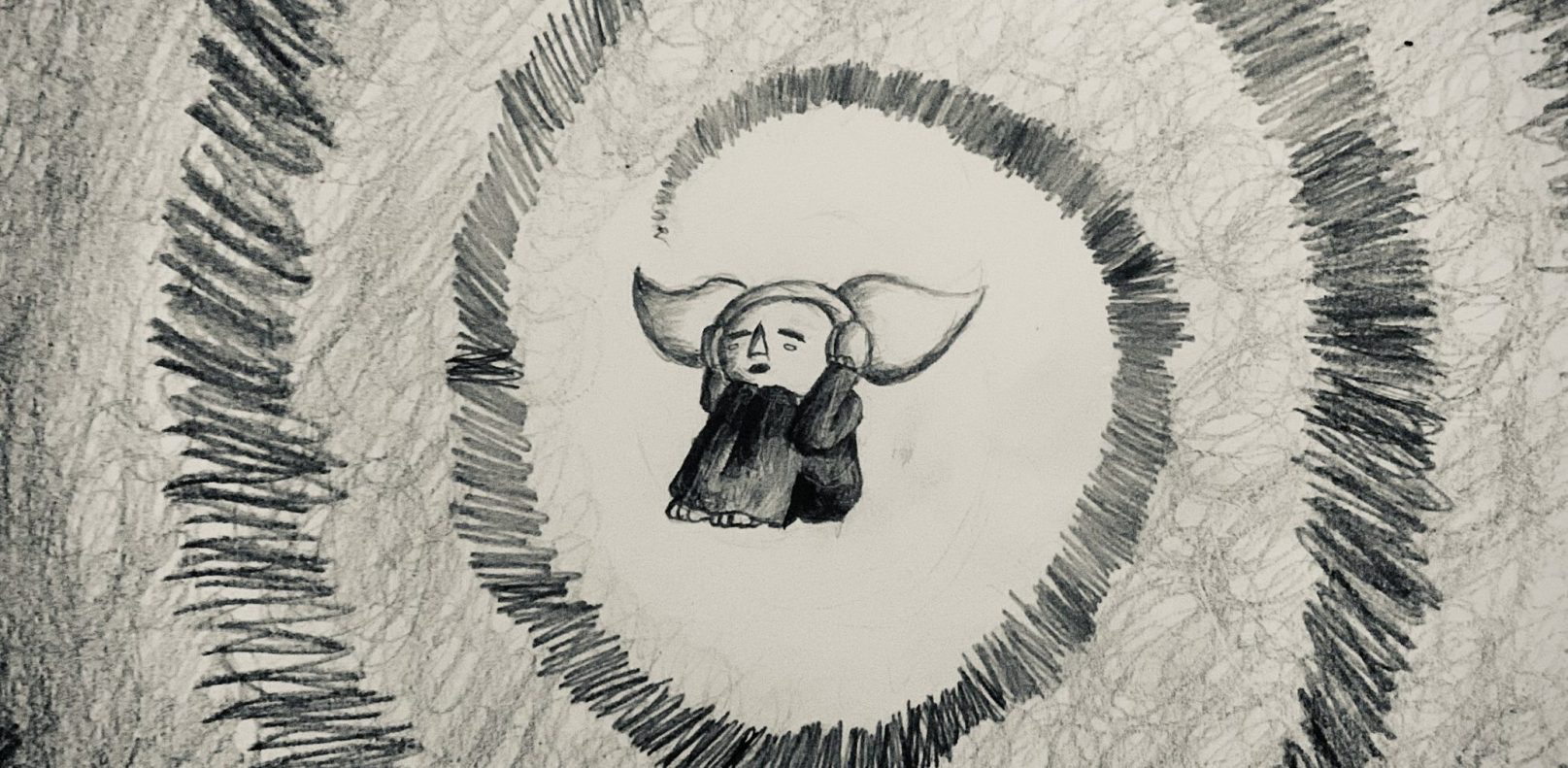Art by Niko Salas
An appreciation of Weatherday’s “Come In”
When Chuck Berry first strummed his guitar for the world to witness nearly eight decades ago, sounds of unfathomable colors danced off the strings. Flying through the air, they planted themselves in the soil, festering the seeds that would soon sprout into the likes of Elvis, The Beatles and The Rolling Stones. A culture of unbridled creativity would grow amongst the youth of the time.
However, after dominating the music world for a generation or two the jungle of rock and roll would be tamed and potted. The culture would become fragmented into a mix of subgenres. The rebellion split into black metal, post-progressive punk, stoner funk, and lo fi-alternative emo rock. It gets convoluted after a while, doesn’t it? I constantly find myself wondering, “What does any of that even mean? How am I supposed to tell those apart in conversation? And what the hell is a shoegaze?”
It can be hard to find your sound among this cesspool of arbitrariness. However, beyond this atmosphere that we’ve created, buried underneath an avalanche of copy-pasted, glasses-pushing internet reviewers, are truly unique works of art that are untouched by the Wikipedia machine.
“Come In” – Weatherday
Sputnik, an artist based in Sweden, has released a multitude of projects under different labels and aliases, with the most notable being their sleeper-hit “Come In,” an album under the alias of Weatherday.
What makes the album so special is the… uh, well that’s actually hard to pinpoint. There is certainly a unique blend of instruments provided, coming together and forming complex compositions. “Come In” creates a very special kind of sound that is a sort of controlled chaos, a gift to the ears. One minute you’ll be engrossed in the melody, and in the next you’ll be sitting in silence among white noise. Snuck in synths and lucious chimes conjure powerful emotions. Nothing specific, just… emotions.
The heart of the album, however, is the intense, blaring electric guitar, which changes its pace almost akin to a heartbeat. Slow intros and midsections followed by absolutely mind-boggling guitar explosions are a common occurance on “Come In.” Backed by drums strong enough to make me wonder how many sets they destroyed in recording, and Sputnik’s wailing, crackling vocals, the project crafts quite the melancholic trip.
My Sputnik Sweetheart
Marking the end of the first half of the album, the track “My Sputnik Sweetheart” boldly interrupts with a thirteen minute rollercoaster ride of a song that evolves enough throughout to be considered an EP of its own.
Beginning with a sharp, painful repeating melody, Sputnik builds suspense. They are saying something behind the thick guitar strums but it can’t quite be made out.
Suddenly, another layer of guitar weaves itself into the orchestration. Sputnik is no longer mumbling, they are screeching as if they’re trying to break free from stitches binding their lips.
Then, calm. All tension is halted as the rapid bass guitar leads us along by a thread. This section evokes feelings of anxiety and lostness.
It doesn’t last long, however, as the instrumentation picks up once more, accompanying Sputnik howling like a werewolf.
Strangely, when the crescendo finally exhausts itself, you are met with the distorted sample of a choir angelically singing “Dulcis Virgo Maria,” the latin phrase for “The Virgin Mary.”
As the music climbs its way back up for a third and final time, the percussion moves at such a fast pace that, for the sake of their health, I cannot recommend this album to anyone over the age of 70.
In an incredibly wicked finale, Sputnik’s final drops of oil are used to the fullest, burning brighter than ever.
The way in which they cycle between highs and lows, constantly striving to outdo the previous climax, is what builds the exciting, emotional feel of the tracks on “Come In.”
Labels
As displayed, the album provides us with a wealth of content to dissect. Between the painful vocals and dynamic song structure, an entire narrative can be pieced together. But should it be pieced together? Would that not sully the sacredness of the art so delicately crafted? What makes a scream emotionally compelling, the words screamed… or the frequency of the scream itself?
If you wanted to, you could ask why there is a random sample of a latin choir halfway through “My Sputnik Sweetheart.” You could draw connections between the song and the Japanese novel of the same name. Themes of abuse, romance and solitude can all be drawn from the lyrics, but do you need to watch a “Genius Official Lyrics and Meaning” video to feel their presence? Essayists, journalists and creatives alike are obsessed with dissecting things and making up terms for recurring elements in media.
What makes the album special is about as easy to pinpoint as its genre… (its not.) You could identify “Come In” as a story about unrequited love. You could label it as a post-progressive noise metal album, an indie lo-fi bedroom pop album, or, you could just recognize it as a superbly emotional experience that strives to make the listener truly feel something.
The only label necessary for Weatherday’s 2019 album “Come In,” is art.

